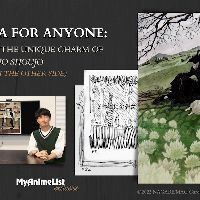This article was written by Deb Aoki
Japanese, like English is a living language that has many colors and expressions, accents and dialects. A street-smart teenager from Osaka may talk differently than an elderly professor from Kyoto. A butler from the Meiji era will express himself very differently than a genderless android from outer space. A farmer from Kyushu will probably speak differently than a thirty-something office worker from Tokyo. So how does this impact manga translation? A lot more than you might think.
How does a manga translator capture the nuances of Japanese dialects and interpret them in a way that makes sense for English readers? Should characters from rural Japan speak with a folksy drawl like someone from a small town in the American South? Should yakuza hit men speak like mobsters from New Jersey? Should lords and ladies from the Heian era speak like Shakespearean actors?
The answer? Well, according to the manga translators and editors I’ve asked, this is a tricky problem, and one that doesn’t have one neat and tidy set of best practices.
“Dialects are very closely tied to geographical location, social status, education, and so on,” said VIZ Media Mike Montesa (Black Lagoon by Rei Hiroe and Blue Exorcist by Kazue Kato). “Switching to a specific dialect of English for one in Japanese is fraught with problems. Such a swap may work only at the broadest levels, but once you get into it even a little way, it gets into very shaky ground.”
 “In Black Lagoon, yakuza characters speak in a very distinct way in Japanese, which can be complicated by Japanese regional accents. The go-to substitution for English was a New York, Bronx or Brooklyn dialect, but looking at it in print, it just didn’t work. The translator went really heavy with it in the first draft of the translation, but I dialed it back so it didn’t sound like the characters were trying so hard to sound like Tony Soprano,” Montesa recalled.
“In Black Lagoon, yakuza characters speak in a very distinct way in Japanese, which can be complicated by Japanese regional accents. The go-to substitution for English was a New York, Bronx or Brooklyn dialect, but looking at it in print, it just didn’t work. The translator went really heavy with it in the first draft of the translation, but I dialed it back so it didn’t sound like the characters were trying so hard to sound like Tony Soprano,” Montesa recalled.
“The translation of regional dialects has definitely been a controversial topic over the years, especially the use of Southern American English to convey the Kansai dialect,” said Mari Morimoto, translator for Naruto by Masashi Kishimoto (VIZ Media) and Ayako by Osamu Tezuka (Vertical). “Kansai is south relative to Tokyo, Kansai people do speak slower and with a slight drawl, and they tend to be more laid back,” she explained. “I also choose to use ‘genteel’ Southern for the Kyoto dialect because it is the more polite and formal of all the Kansai dialects.
“With Ayako, there was some criticism of my using Southern American for the Tohoku dialect spoken by the main character’s family, but there also tends to be grumbling about the use of ANY accented English (in manga translation,” Morimoto observed. “In terms of different accents being difficult to convey in English, I feel it goes both ways. Those of us who use Southern American dialect do so because it’s very recognizable by readers. But it can be tricky when certain speech styles are used to indicate specific ethnicities that can be very prejudicial or even offensive when combined with the implication of a lack of education or low social or economic status. I feel that those of us in the translation field need to discuss and come to some agreement on how to best convey this kind of dialogue without insulting or degrading anyone.”
“The type of speech that’s hardest for me personally to deal with in English is a very specific regional dialect, like the Osaka dialect,” said Jocelyn Allen, translator of Onwards Towards Our Noble Deaths by Shigeru Mizuki (Drawn & Quarterly) and Blue Morning by Shoko Hidaka (SuBLime / VIZ Media). “There’s so many unspoken implications, stereotypes and assumptions that go with it, and the author is often using it as a shorthand for personality and character, or is actively playing against them,” says Allen.
For example, in Japan, someone who is from Osaka comes with a stereotype as being more out-spoken, flashier, or humorous (since Osaka is the home of manzai comedy). In the US, when a character is from New Jersey, the stereotype is that they’re street-smart and a little rough around the edges.
VIZ Media editor Marlene First came across the challenges of conveying regional dialects in World Trigger by Daisuke Ashihara. “There was a group of characters speaking similar but slightly different Kansai dialects. In that case, I dumbed down their speech to sound more ‘punk-ish,’ she said. “I don’t think using a ‘Western accent’ or a ‘Southern accent’ for that region is a good idea because they really aren’t like that. Those accents have a different implication that could form a bias towards a character that isn’t actually in the Japanese. Like a thick Southern accent on a character from Osaka might make them sound like they’re less educated, but the character could be a highly-educated person from Osaka and just happen to talk like most people who come from that area.” But as a general rule of thumb, First takes this approach: “I really do like to go the simplest route that won’t impose too much “English language bias on a character.”
This sentiment was echoed by Allen. “My general philosophy is to reflect the original as closely as possible in English,” “This basically means – to me – that when a character speaks differently than another character, I need to re-create that difference in English.”
An example of Allen’s approach to translating these speech differences is Blue Morning, a story set in the Meiji Era about a forbidden romance between a butler and a young man from a noble family.
“There are so many things to be aware of when the characters in that series speak. It wasn’t so hard to find the right balance because the original Japanese set the tone. For example, the stiffer Japanese that Katsuragi (the butler) uses maps well to polite English – longer sentences, fewer contractions and more roundabout ways of phrasing things.”
“I prefer to make these class distinctions through register and wording rather than throw in some sort of “Merrie Old England” dialect because I feel like any dialect from a specific English locale is more jarring than anything else, especially in a story that is so deeply and obviously Japanese, as Blue Morning is.”
Annette Roman, editor for VIZ Media’s Pokemon comics series also mentioned opting for a “slight Southern accent for Japanese ‘country’ accents” and “high diction is based on high diction in old English novels,” but also added, “I try not to overdo it so it becomes noticeable.” She also cautioned about using contemporary slang in translations. “Most of us try to avoid modern slang to avoid dating our books, tempting as it is sometimes.”
“Most of the time, I just hope the manga creators don’t make such speech characteristics a big part of their script,” said Montesa. “If the script can be presented with a ‘neutral’ accent, then the reader can simply map whatever accent they think that character might be using ovder the dialog when they hear it in their head. If need be, as a translator or editor, you can provide a subtle clue to the character’s accent, something that suggests a certain type of accent or speech pattern, then the reader can fill it in for themselves.”
Debora Aoki has been writing about manga professionally since 2006, but is also a lifelong manga reader who has many happy memories reading Nakayoshi when she was in grade school. From 2006-2013, she was the Manga Editor for About.com. She is currently the editor of MangaComicsManga.com, a site devoted to manga and comics from around the world. She is also a contributing writer for Publishers Weekly. Debora lives in California, in the San Francisco Bay Area and regularly writes about comics events throughout North America, and occasionally Japan.
 Click the banner to be taken to the Manga Translation Battle Homepage!
Click the banner to be taken to the Manga Translation Battle Homepage!




